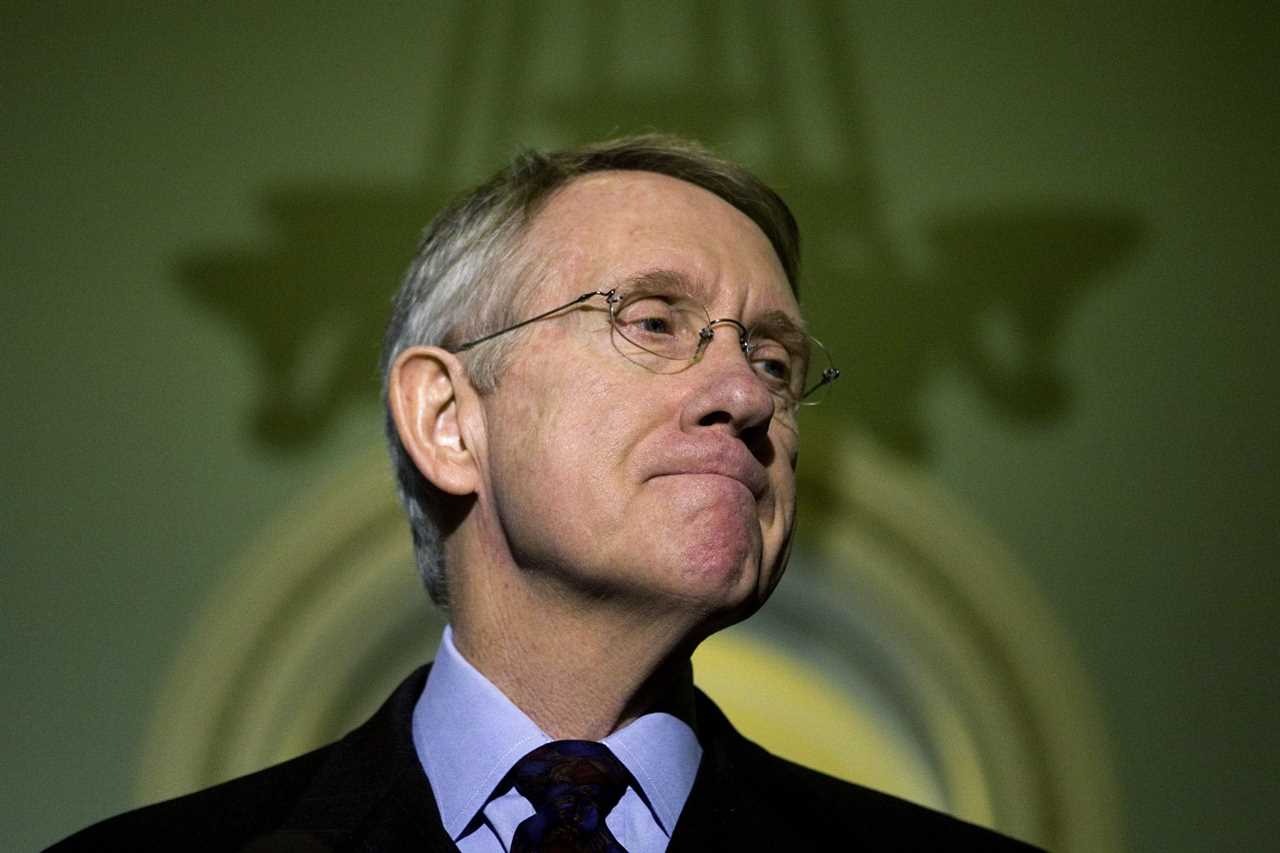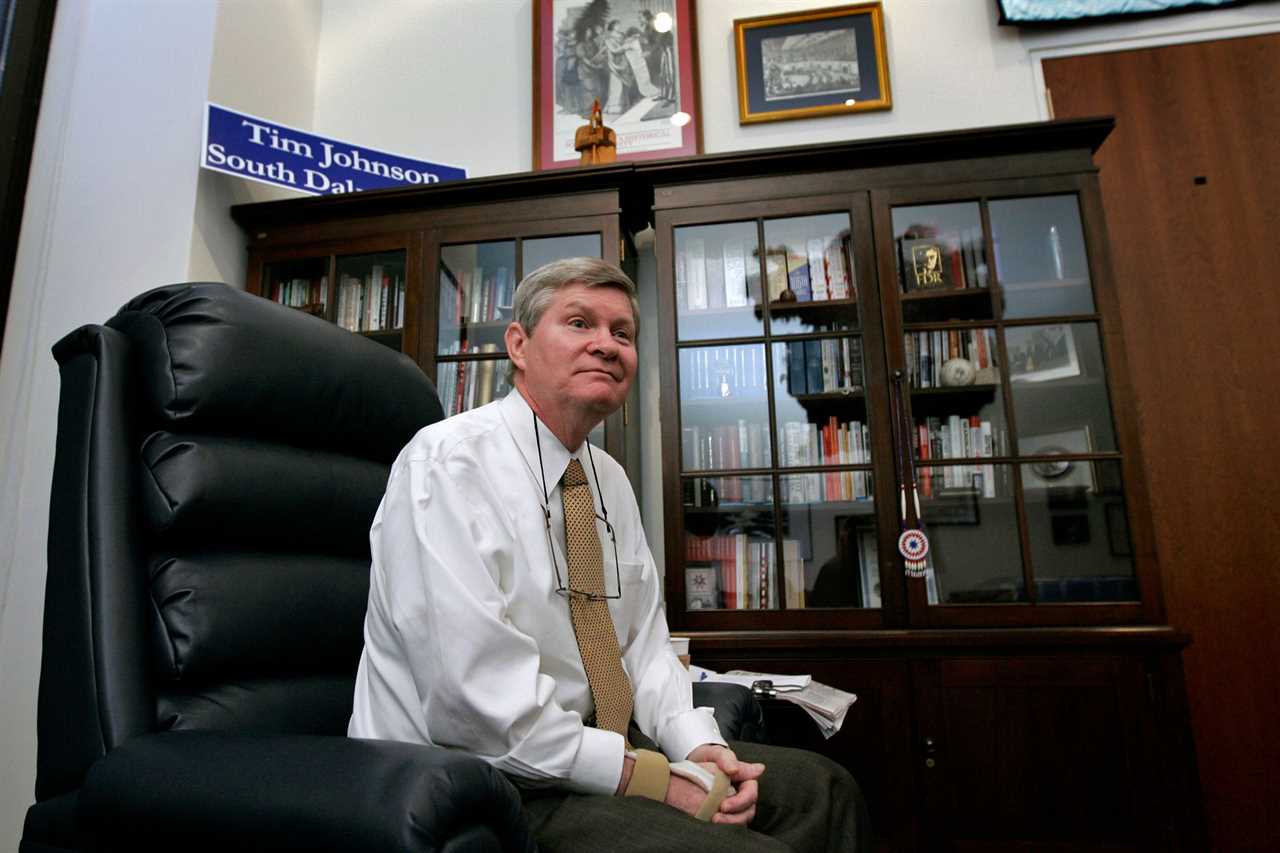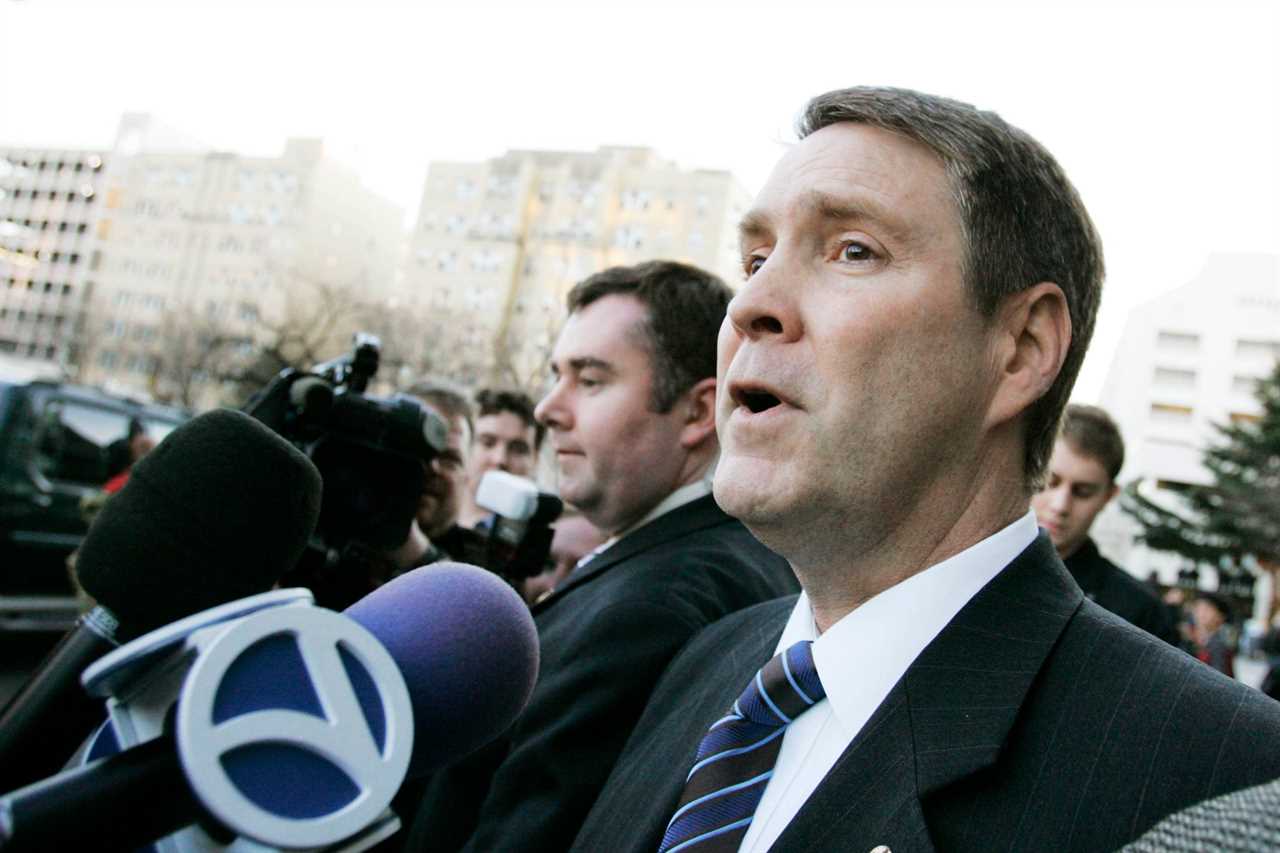
Until Dec. 13, 2006, I had never had any real contact with Senate Democratic Leader Harry Reid, other than to shake his hand in passing at an occasional fundraiser. That would dramatically change, however, as that was the day my boss, U.S. Sen. Tim Johnson (D-S.D.), suffered a life-threatening brain hemorrhage while holding a press call with South Dakota media.
This was terrifying. Tim was not only my longtime boss, he was also my good friend — I’d run his first congressional campaign in 1986, and 20 years later, I was still the only chief of staff that he had ever had.
Trailing the ambulance rushing him to George Washington Hospital, I called Reid to alert him, saying that I thought that Tim had probably had a stroke of some kind, and that it seemed serious to me. Reid thanked me for calling him and, obviously trying to put me at ease, told me that he’d had a “mini-stroke” the year before, and it hadn’t slowed him down at all, and that was likely going to be the case with Tim.
I prayed he was right.
Unfortunately, he wasn’t. The hemorrhage was deep inside Tim’s brain, and he had a 15-20 percent chance of dying in surgery. A woman from the GW public relations staff escorted Tim’s wife, Barbara, and me to a private waiting room on the surgical floor, and it wasn’t long before both Reid; former South Dakota Sen. Tom Daschle, who had been Senate Democratic leader until 2005, when Reid replaced him; and two of Tim and Barb’s kids joined us in the vigil. We were there for an interminable six hours, broken only by South Dakota native Tom Brokaw’s calling Tom Daschle to see what he could learn, Reid’s leading us in a heartfelt prayer that had two of us in tears and a visit every hour or so by the chaplain, who would give us updates on how Tim was doing.
When the surgery was over, the young surgeon told us that it had gone as well as it could have, that it was impossible to know what effect the hemorrhage would have on Tim, but that he was hopeful for a substantial recovery.

The next day, I was with Tim’s family in another private hospital waiting room, watching CNN medical correspondent Sanjay Gupta give surreal reports on “Tim Johnson’s brain,” when who unexpectedly comes into the room but then-Republican (and about to retire) Senate Majority Leader Bill Frist, along with the attending physician of the U.S. Capitol, Dr. John Eisold. Suddenly, the dark political reality of the situation came crashing down on us. It wasn’t lost on anyone that the Democrats had just won barely enough seats to take control of the Senate and make Harry Reid the new majority leader, but only with a very narrow 51-49 seat majority. As CNN and other cable news networks reported ad nauseam on the hospital TVs, if Tim died, Republicans would keep control of the Senate, as his replacement would be chosen by South Dakota’s Republican governor, Mike Rounds, and Vice President Dick Cheney would have broken the 50-50 Senate tie in favor of the GOP. Then, as now, control of the Senate hinged on just one seat — and, in moments like that, one senator’s health can become a matter of extreme national importance.
It was more than a little jarring to see Frist. Two years earlier, in 2004, he had broken the Senate precedent that a party leader doesn’t campaign against his counterpart from the other party when he traveled to South Dakota to campaign against Daschle, Tim’s close friend and then the Senate Democratic leader. Some of us — like me — still had very hard feelings about it. It wasn’t at all odd that Eisold was there — his office was first on the scene when Tim needed help the day before, and checking on a member of Congress who was in a Washington, D.C. hospital was part of his duties. However, try as I might, I couldn’t make any sense of why Frist was there — it seemed a little odd, as Tim and Frist had no relationship whatsoever, but Frist didn’t stay longer than required to pay his respects to Tim’s wife, Barb, and then he and Eisold said goodbye and left, presumably to return to the Senate.
Or, so I thought. A few minutes after Frist and Eisold left, I went to check on Tim and, to my astonishment, Frist and Eisold were in Tim’s hospital room, chatting with his doctors, while Tim was lying comatose in bed, hooked up to various machines. “What the hell?” I thought; no one had given the Republican Senate majority leader, of all people, permission to traipse into Tim’s room. It now seemed to me that Frist’s visit to the family was a ruse and that he was there on a reconnaissance mission to learn Tim’s prognosis — whether he would live or die, or what shape he would be in if he recovered. (Editor’s note: Frist says, “I was there as a friend and physician.”)
This wasn’t right, but I didn’t know what to do — I certainly didn’t have the standing to kick the Senate majority leader out of Tim’s room. But then it occurred to me to call Harry Reid — he would know what to do — so I did.
When I told Reid where Frist and Eisold were, he exploded in anger. “What the hell is Eisold doing bringing Frist there? He knows better than that!” And then, “You tell Frist that he is not to talk to the media when he leaves the hospital, and I’m going to talk to Eisold when he gets back to the Capitol!”
When I spoke to Frist, he replied, “Oh, I’d never do that!” And he didn’t comment, but he also refused to follow the hospital’s PR person’s suggestion that he exit unobtrusively through a back door, instead walking out the front past the phalanx of network and cable news cameras lined up in what seemed like a “death watch.” I thought: Frist wanted the photo op of his visit to the ailing Democratic senator. Welcome to Washington ...

I had a number of meetings with Reid in his office after that — all focused on whether Tim was going to run for reelection in 2008 (which he strongly encouraged) — and when POLITICO did a profile on me, Reid was kind enough to call me to say he really liked it. But my appreciation for him grew even more in January 2010, when Sen. Chris Dodd announced that he wasn’t going to run for reelection that year, thus leaving the chairmanship of the Senate Banking Committee open, with Tim next in line to fill it. When a rumor or two surfaced that a few members might make a move in the Caucus to give the chairmanship to someone else, on the pretext that he wasn’t up to the job, Reid shut that down immediately — Tim was Reid’s guy, and that was that.
And Reid’s support for Tim was absolutely on target — two years after his brain hemorrhage, he was easily reelected in 2008 (and by a 25 percent margin). While Tim’s ability to speak had been somewhat slowed by the hemorrhage, he was cognitively the same person he had always been, and flawlessly performed the duties of chair of the Banking Committee, which on his watch passed the JOBS Act, Surface Transportation and Flood Insurance reauthorizations, the Export-Import Bank Reauthorization and the Iran Threat Reduction Act, among much other legislation.
Harry Reid was a strong leader and a good man, and his rock-solid support for Tim Johnson through a very difficult time was something that I’ll never forget, and for which I will always be grateful.
----------------------------------------
By: Drey Samuelson
Title: Harry Reid, Bill Frist, My Boss’s Coma and Control of the U.S. Senate
Sourced From: www.politico.com/news/magazine/2022/01/07/harry-reid-bill-frist-coma-control-senate-526694
Published Date: Fri, 07 Jan 2022 04:30:10 EST






